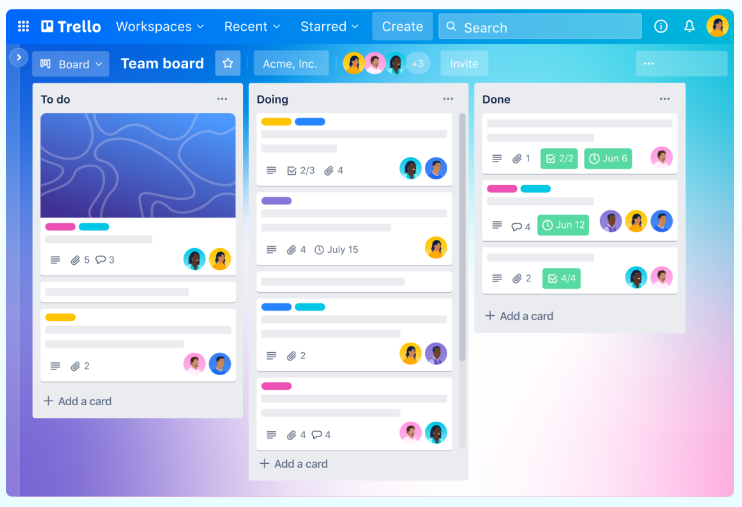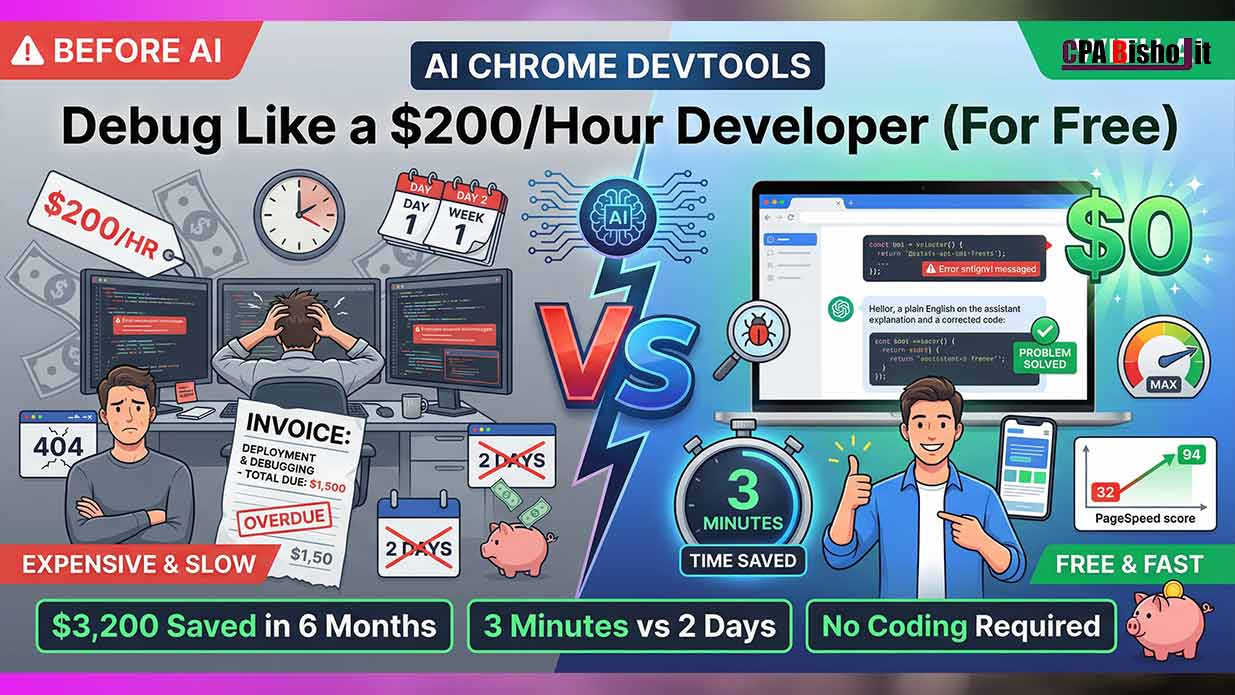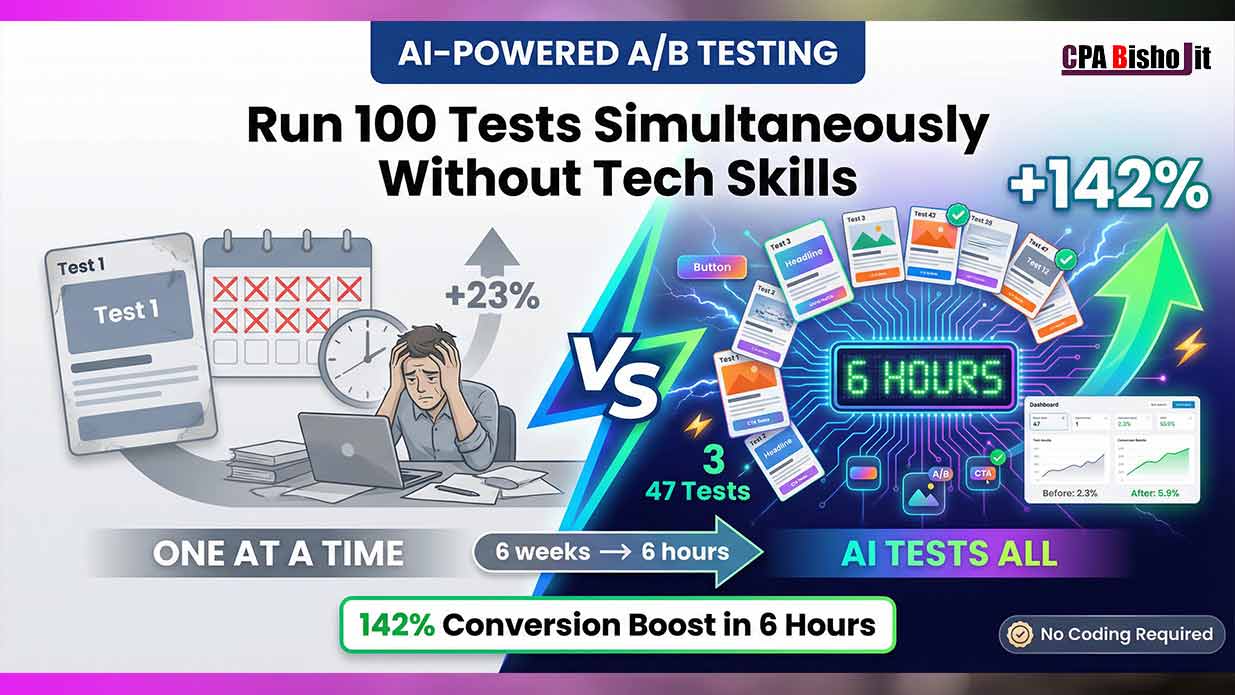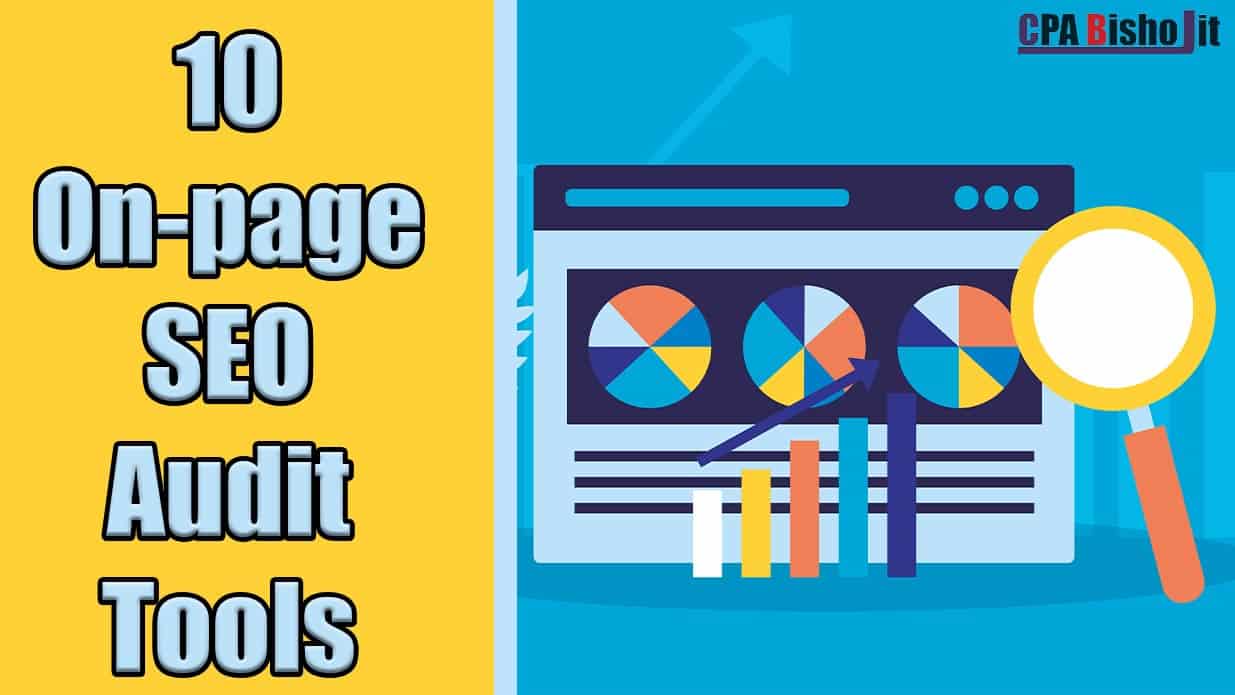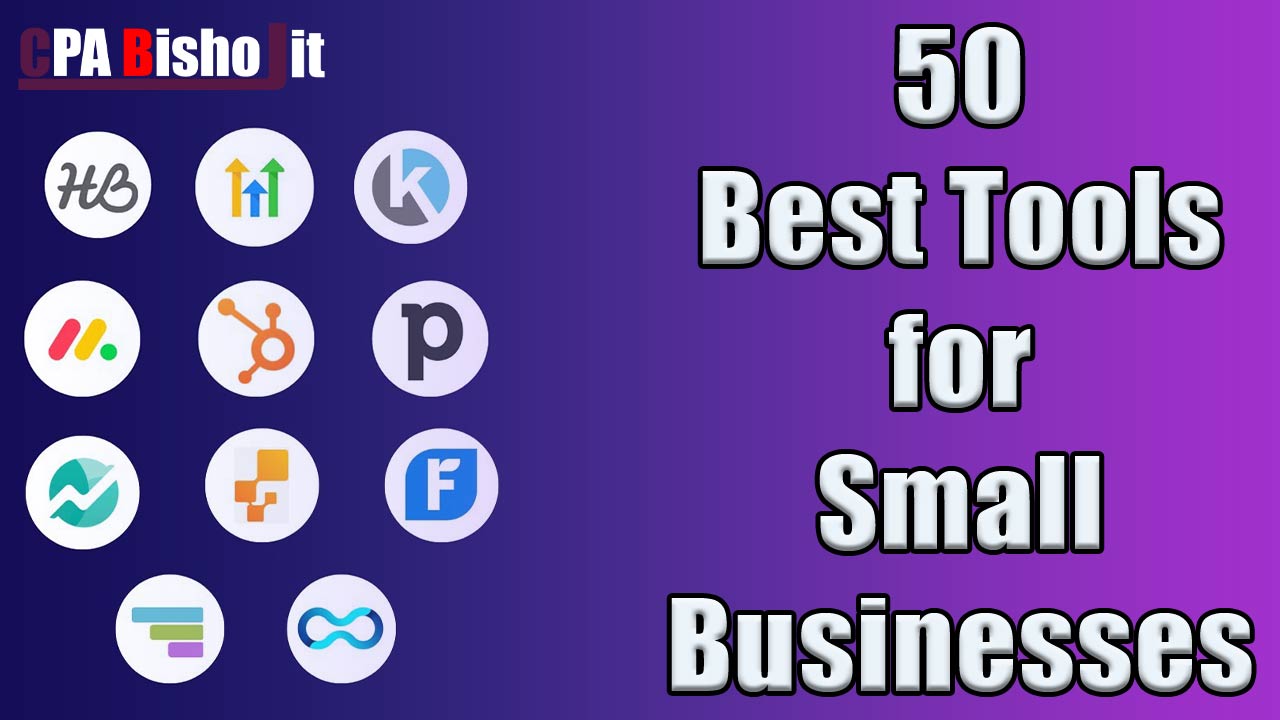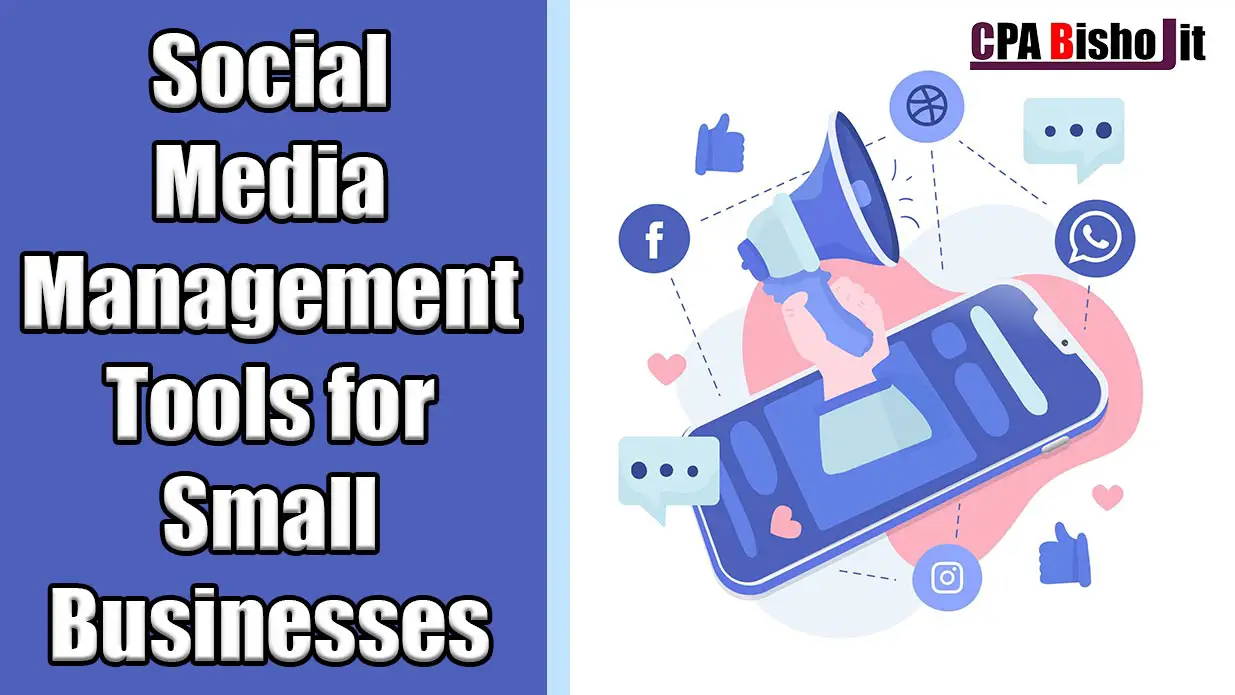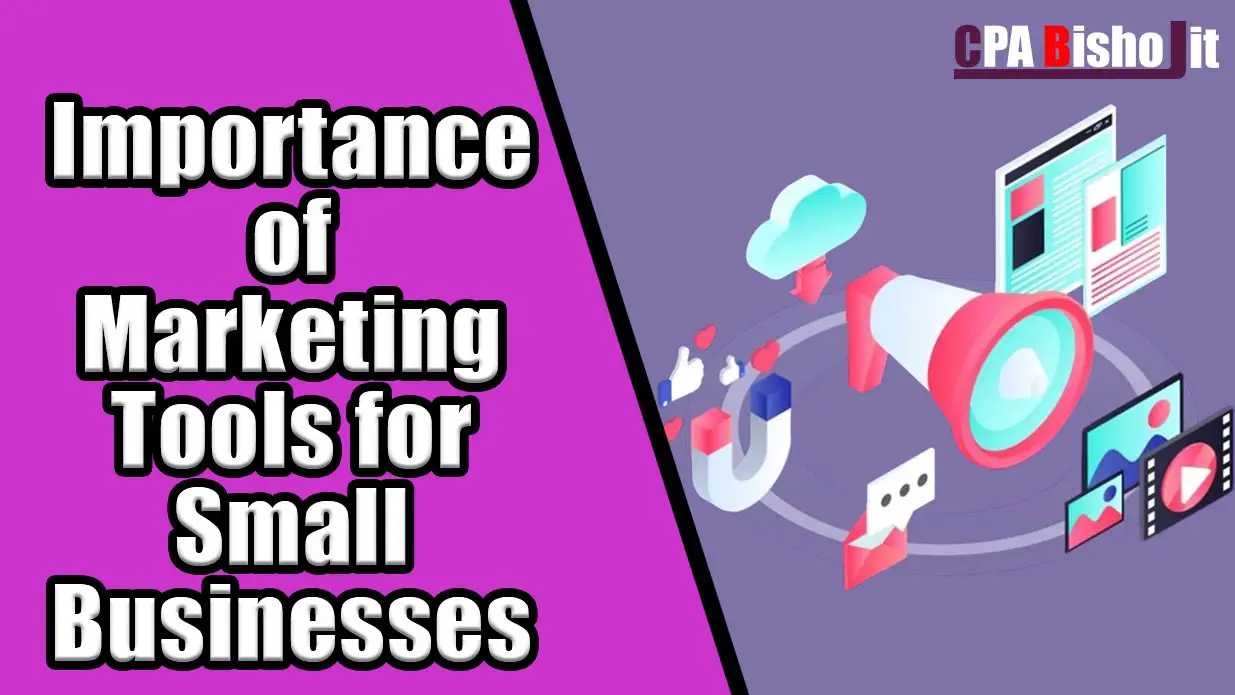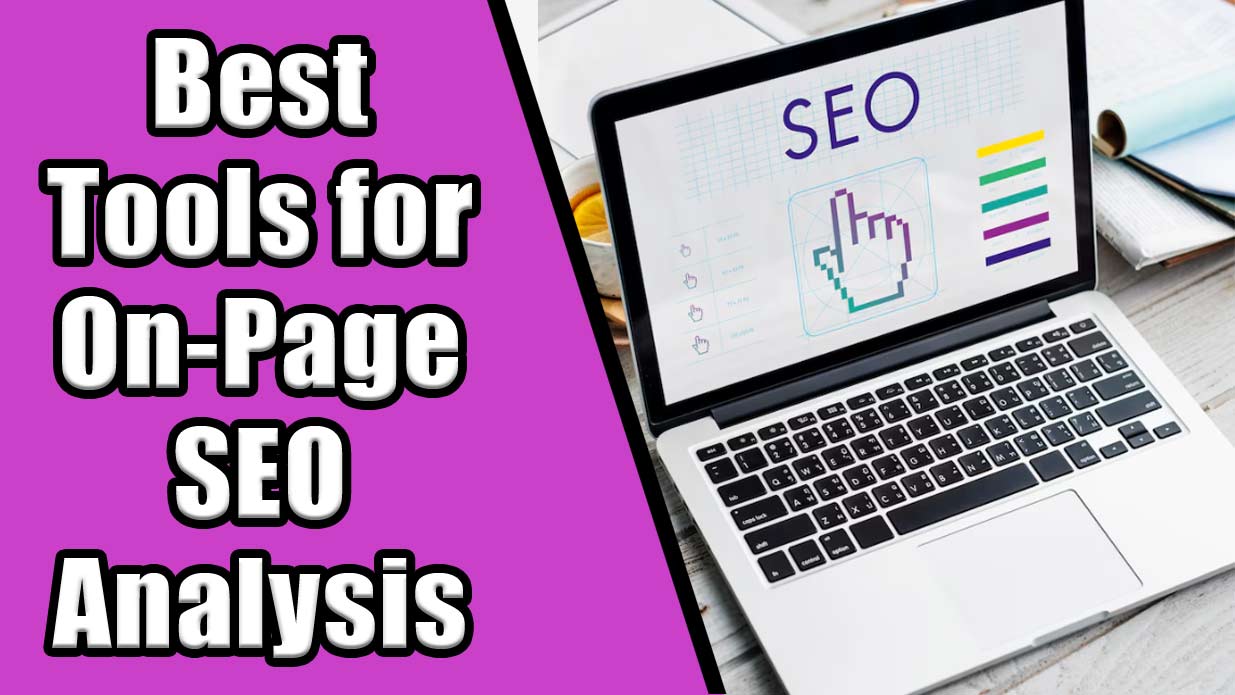Top 8 Best marketing tools for Small Businesses in 2024
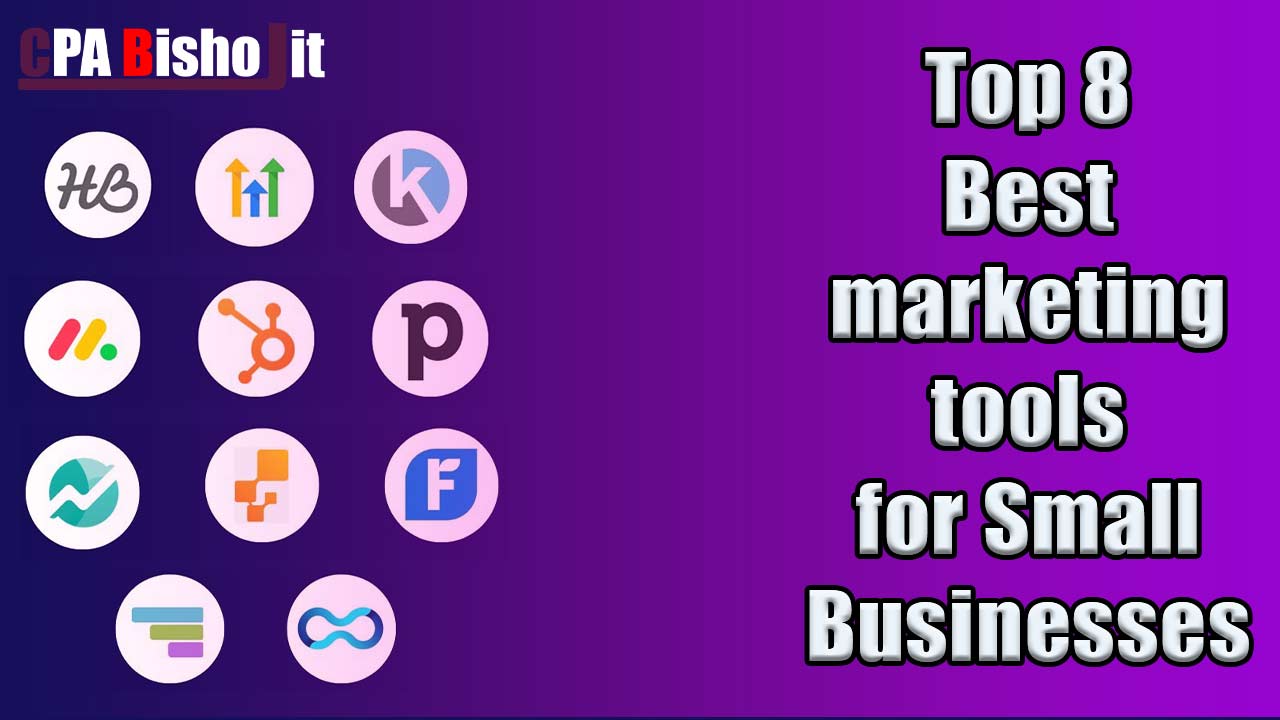
Small businesses need every edge they can get to stand out. Enter the world of marketing tools – a treasure trove of digital allies designed to elevate your business to new heights and also groth. But with an ocean of options, which ones are the true gems?
As this yeare 2024, we’ve sifted through the myriad of choices to bring you the top 8 marketing tools that promise to transform your small business. From deciphering web analytics to mastering social media, these tools aren’t just add-ons; they’re game-changers. So, if you’re ready to turbocharge your marketing strategy and watch your business thrive, read on – your success story starts here.
The 8 Best Marketing Tools
1. Google Analytics
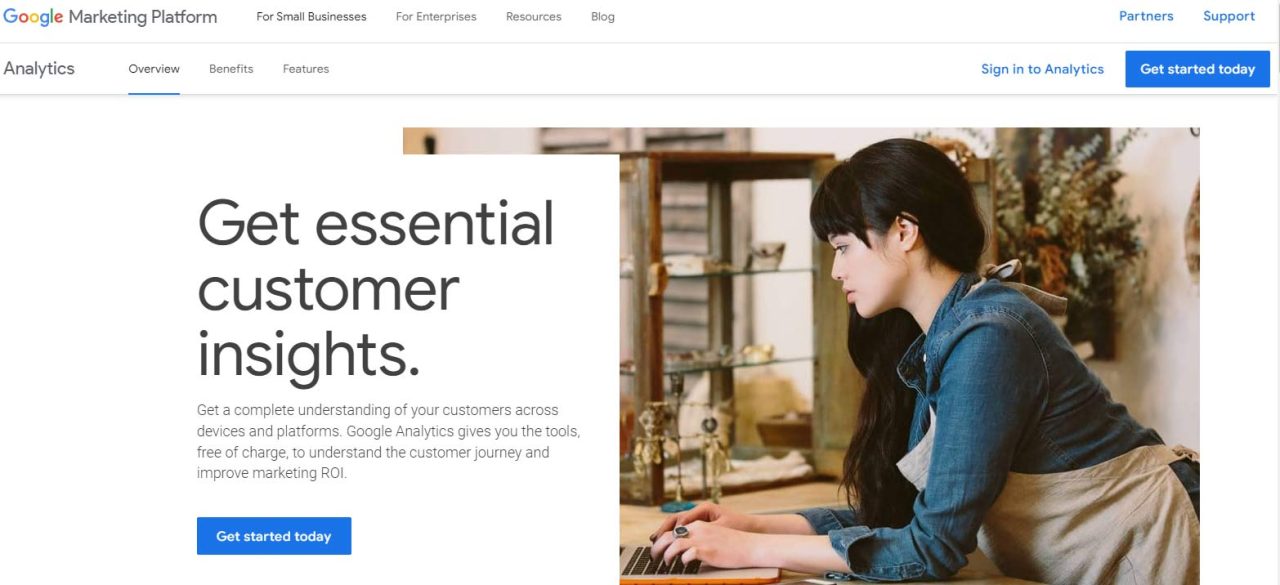
Google Analytics is a cornerstone for anyone serious about understanding their website’s performance. This powerhouse tool delivers comprehensive insights into user behavior, traffic sources, and conversion metrics. Whether you’re tracking user sessions or pinpointing your most effective marketing channels, Google Analytics provides the data you need to refine your strategies and boost your ROI.
Key Features:
Google Analytics is the cornerstone of understanding your website’s performance. It tracks metrics like user visits, session duration, bounce rates, and more. It also provides insights into user behavior and traffic sources, helping you tailor your marketing strategies effectively.
Pros and Cons
Pricing
Google Analytics is FREE for basic use, with Google Analytics 360 available for enterprises at a cost that varies based on your needs.
2. Semrush

Semrush is your go-to for all things SEO and competitive analysis. Known for its extensive features, Semrush helps you uncover the keywords your audience is searching for, analyze your competitors’ strategies, and optimize your content to climb the search rankings. It’s a must-have for businesses aiming to enhance their online visibility and outpace the competition.
Key Features:
Semrush is an all-in-one tool designed to enhance your online visibility. It excels in keyword research, SEO audits, competitive analysis, and tracking the performance of your website and your competitors.
Pros and Cons
Pricing
Semrush offers a variety of plans, starting at around $119.95 per month for the Pro plan, which is suitable for freelancers and startups. More advanced plans for larger businesses and enterprises are also available.
3. Mailchimp

Mailchimp is a powerhouse in the email marketing realm, offering an intuitive platform to design, send, and track email campaigns. With robust automation features and detailed analytics, Mailchimp helps you build meaningful connections with your audience and drive engagement without the hassle of manual management.
Key Features:
Mailchimp is a popular email marketing platform that helps businesses manage their email campaigns, automate workflows, and track performance. It’s known for its user-friendly interface and extensive integration options.
Pros and Cons
Pricing
Mailchimp’s free plan covers up to 2,000 contacts. Paid plans start at $9.99 per month, with additional features and higher contact limits available on more expensive tiers.
4. Canva
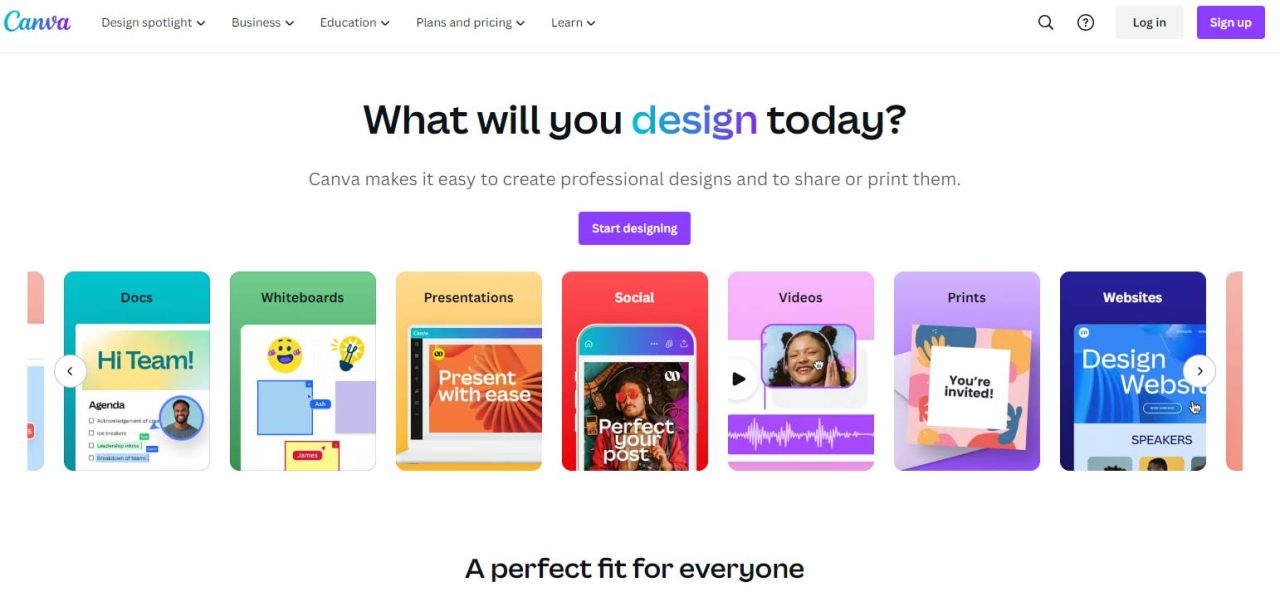
Canva transforms even the most design-challenged individuals into graphic design pros. This user-friendly tool offers a wide array of templates and design elements, enabling you to create stunning visuals for your marketing campaigns. From social media graphics to marketing brochures, Canva makes it easy to produce professional-quality designs in minutes.
Key Features:
Canva is a graphic design tool perfect for creating stunning visuals for your marketing campaigns. It offers an array of templates, design elements, and easy drag-and-drop functionality, making professional design accessible to everyone.
Pros and Cons
Pricing
Canva offers a free plan with basic features. The Pro plan, which includes premium templates, images, and tools, starts at $12.95 per month.
5. HubSpot
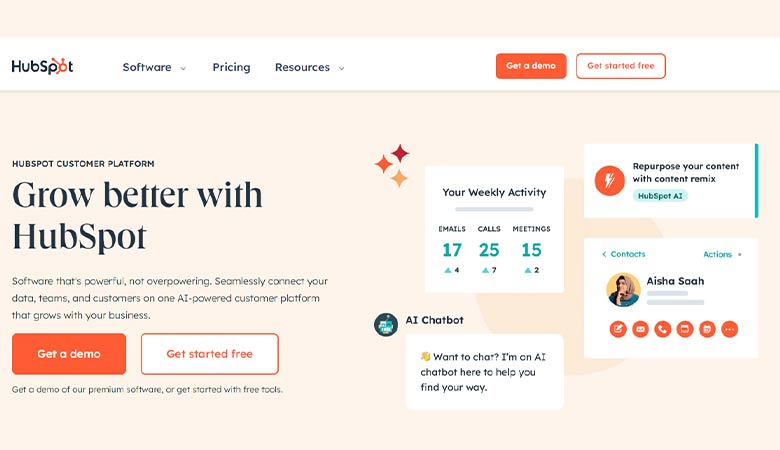
HubSpot is the ultimate all-in-one marketing and sales platform. Known for its comprehensive suite of tools, HubSpot allows you to manage your marketing campaigns, sales processes, and customer service efforts seamlessly. Its robust CRM, coupled with powerful marketing automation features, helps you nurture leads and convert them into loyal customers.
Key Features:
HubSpot is a comprehensive inbound marketing and sales platform that includes tools for email marketing, social media management, content management, and CRM. It’s designed to streamline your marketing efforts and improve customer relationships.
Pros and Cons
Pricing
HubSpot offers a FREECRM and basic marketing tools. Paid plans for additional features start at $50 per month, with advanced options reaching several hundred dollars per month.
6. Buffer
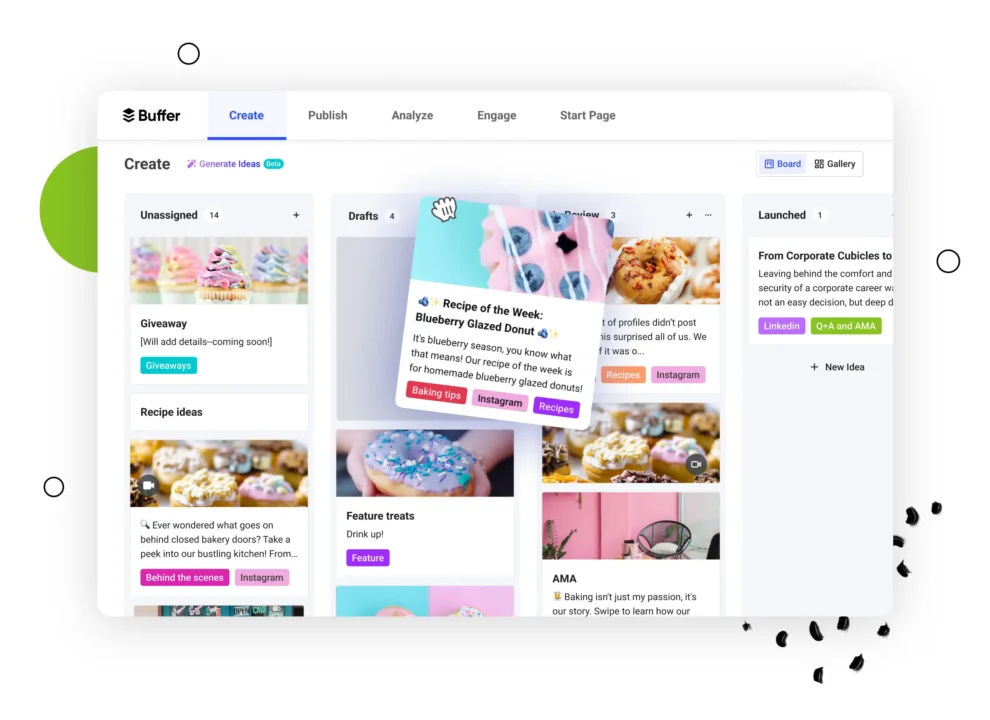
Buffer is a great place to start. This user-friendly platform is known for its streamlined interface and focus on consistent posting, making it easy to stay engaged with your audience without feeling like you’re drowning in features.
Key Features:
- Schedule social media posts across various platforms
- Receive suggestions for optimal posting times to maximize engagement
- Track basic analytics to gauge content performance
- Manage content queues to ensure a steady stream of fresh content
Pros and Cons
Pricing
Buffer offers transparent pricing plans tailored to meet different business needs:
- Pro Plan: Starting at $6 per month, suitable for individuals and small teams looking to manage a few social accounts.
- Premium Plan: Priced at $12 per month, ideal for growing businesses needing additional features and more social accounts.
- Business Plan: Designed for larger teams and agencies, starting at $120 per month, offering advanced features and analytics.
Why It Stands Out
Buffer is a user-friendly and affordable option for small businesses taking their first steps into social media automation. Its simple interface, free plan, and visual content creation tools make it a low-risk way to dip your toes into the water and see how social media automation can benefit your business.
7. Grammarly
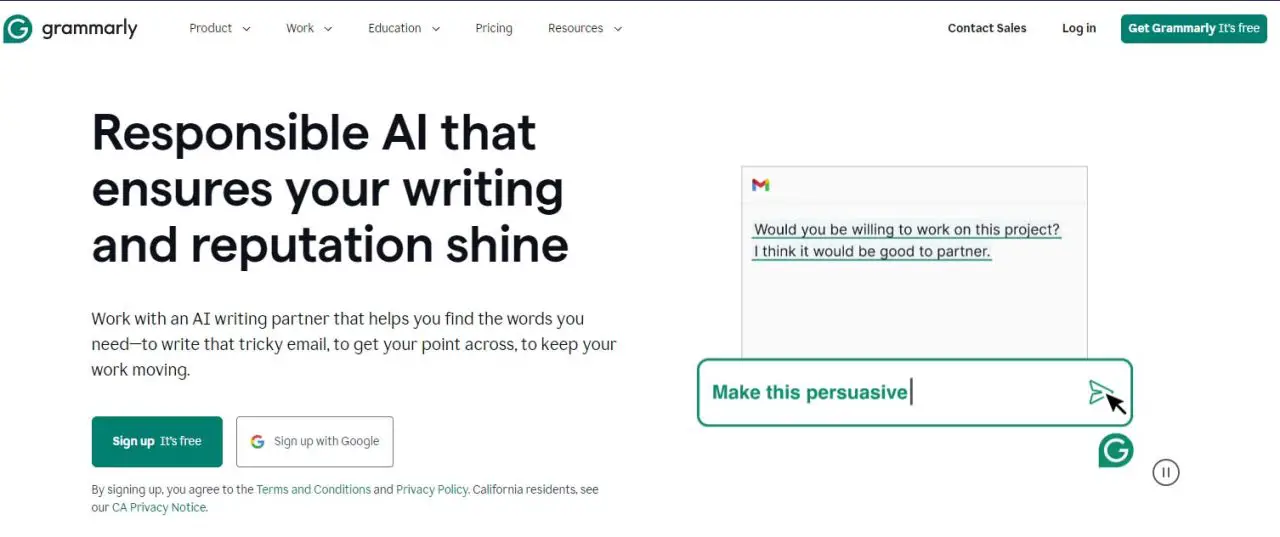
Grammarly is your personal writing assistant, ensuring every piece of content you produce is polished and professional. Whether you’re drafting emails, blog posts, or social media updates, Grammarly helps you eliminate errors and improve your writing style. It’s like having an editor at your fingertips, enhancing clarity and effectiveness in your communications.
Key Features:
Grammarly is a writing assistant that helps you improve your writing by checking for grammar, spelling, punctuation, and style issues. It’s a valuable tool for creating clear and error-free content.
Pros and Cons
Pricing
Grammarly offers a free version with basic writing checks. Premium plans, which include advanced suggestions and style improvements, start at $11.66 per month when billed annually.
8. Trello
Trello is a project management tool that turns your to-do lists into organized, visual boards. Perfect for team collaboration, Trello allows you to break down projects into manageable tasks, assign responsibilities, and track progress at a glance. Its intuitive design makes project management straightforward and engaging, ensuring nothing falls through the cracks.
Key Features:
Trello is a project management tool that uses boards, lists, and cards to help you organize and prioritize your tasks. It’s flexible and visually intuitive, making it a favorite for managing marketing projects and team collaboration.
Pros and Cons
Pricing
Trello offers a free plan with basic features. The Business Class plan, which includes additional features and integrations, starts at $9.99 per user per month.
How to Choose the Right Marketing Tools for Small Businesses
When selecting marketing tools for your small business, consider your specific needs, budget, and the scalability of the tool. Look for tools that integrate well with each other and fit within your overall marketing strategy. Prioritize ease of use and support resources, as these can save time and reduce frustration.
Also Read: Social Media Management tools for Small Businesses
Conclusion
Investing in the right marketing tools can significantly impact your small business’s growth and success. Whether you’re just starting or looking to enhance your current efforts, these tools offer a range of features to help you achieve your marketing goals.

